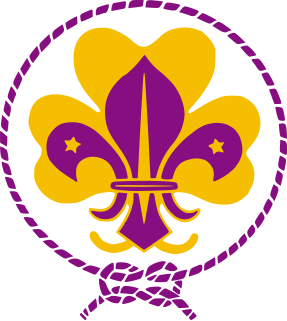
Scouting Nederland is the national Scout organisation of the Netherlands with approximately 110,000 members (53,324 male and 54,663 female, 87,000 youth members, as of 2010.
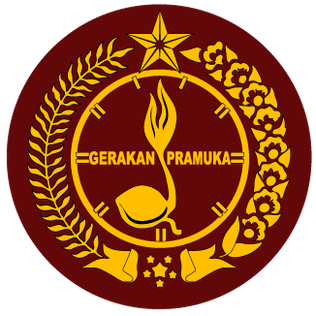
The Pramuka Movement of Indonesia, officially the Praja Muda Karana Scouting Movement, is the national scouting organization of Indonesia. Scouting was founded in the Dutch East Indies in 1912, and Indonesia became a member of the World Organization of the Scout Movement (WOSM) in 1953. Its membership is compulsory for students. It has 21,599,748 members, making it the world's largest Scout association.

Boy Scouts van Suriname is the national Scouting organization of Suriname. Scouting in Suriname officially started in 1924 and became a member of the World Organization of the Scout Movement (WOSM) in 1968. The coeducational association has 2,601 members.

The 5th World Scout Jamboree was the World Scout Jamboree where 81-year-old Robert Baden-Powell gave his farewell.

Jean Jacques Rambonnet was a Dutch naval officer, politician and the only Chief Scout of the Netherlands.

Pangeran Adipati Soejono was a Dutch politician and the only Indonesian minister who has ever taken part in a meeting of the Dutch cabinet, and was the first Muslim to serve in a ministerial capacity in the Netherlands.

Willem Anthony Engelbrecht, also known as Willem Anthonie Engelbrecht, was a Dutch jurist and colonial administrator. He was one of the originators of the so-called "Dutch Ethical Policy" in the Dutch East Indies.

The Netherlands Indies Civil Administration was a semi-military organisation, established April 1944, tasked with the restoration of civil administration and law of Dutch colonial rule after the capitulation of the Japanese occupational forces in the Netherlands East Indies after World War II.
Pieter Adriaan Jacobus "Piet" Moojen was a Netherlands-Indies architect, painter and writer. He studied architecture and painting in Antwerp. He lived and worked in the Dutch East Indies from 1903 to 1929. He was one of the first architects to implement Modernism in the Dutch East Indies. Moojen became widely known for his work on the Dutch entry at the Paris Colonial Exposition in 1931. He was active as an architect between 1909 and 1931.

Nederlandsch-Indische Levensverzekerings en Lijfrente Maatschappij (NILLMIJ) was a major Dutch insurance business with substantial headquarters buildings and branch offices in the Dutch East Indies and in the Netherlands. After Indonesia became independent, major Dutch companies operating there, including NILLMIJ, were nationalized. The company's operations in the Netherlands continued while the Indonesian government continued the renamed Indonesian business PT Asuransi Jiwasraya.
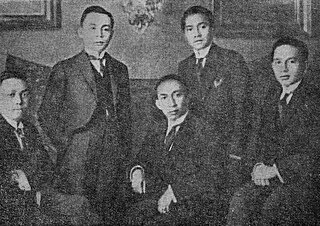
The Perhimpoenan Indonesia (PI) was an association for Indonesian students in the Netherlands in the first half of the twentieth century. It was established under the Dutch name Indische Vereeniging, and it changed its name to Indonesische Vereeniging in 1922, and its Malay translation Perhimpoenan Indonesia in 1925. Although small in membership numbers - throughout the period between 30 and 150 members - the organization was important because it was one of the first to campaign for full Indonesian independence from the Netherlands, and because many PI-students would later acquire prominent political positions in the independent state of Indonesia.
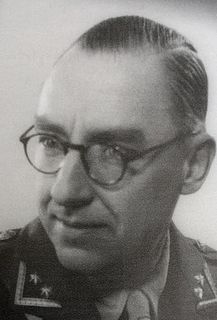
Jacobus Smede "Koos" Sinninghe Damsté (1902–1995) was a lawyer in colonial Indonesia during 1927–1942, prosecutor of Japanese war criminals during 1946–1947, chairman of the national business association in Indonesia during 1948–1954, and head of the Netherlands Security Service during 1955–1967.
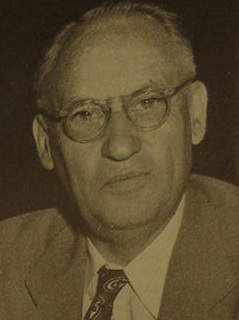
Petrus Hendrik Willem "Peter" Sitsen was a military officer, building contractor and public servant in colonial Indonesia. He was the architect of Indonesia's industralisation policies during 1937–1942 and 1946–1950.
Raden Darsono Notosudirdjo, more commonly known simply as Darsono, was a journalist and editor of Sinar Hindia, an activist in the Sarekat Islam and chairman of the Indonesian Communist Party from 1920 to 1925.
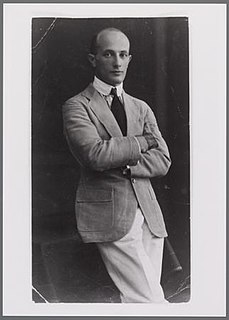
Adolf Baars was a Dutch-Jewish Communist, engineer, and writer who is largely remembered today for his early role in the Indische Sociaal-Democratische Vereeniging and the Indonesian Communist Party.
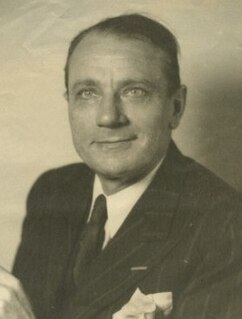
George Antoon Philip Weijer (1891-1979) was a business representative in colonial Indonesia, an economics professor at the University of Utrecht, and a government advisor and company director in the Netherlands.
Raden Pandji Wirasmo Notonindito, often referred to as Dr. Notonindito, was a Javanese accountant, intellectual and politician in the Dutch East Indies. He founded the short-lived Indonesian Fascist Party in 1933.
The Indonesian Fascist Party was a short-lived Fascist party founded in Bandung, Dutch East Indies in the summer of 1933 by a Javanese economist and politician named Notonindito. Although it did not last long and is poorly documented, it is often cited as an example of how European Fascist ideas could manfest themselves in an Asian context, as well as appearing in conspiracy literature exaggerating its importance.

Paul Alex Blaauw, usually known as P. A. Blaauw, was an Indo politician, lawyer, and member of the Dutch East Indies Volksraad representing the Indo Europeesch Verbond from the 1920s to the 1940s. During the period of transition to Indonesian independence and the 1949 Dutch–Indonesian Round Table Conference he was a leader of the largest faction advocating for the rights of Indos.















